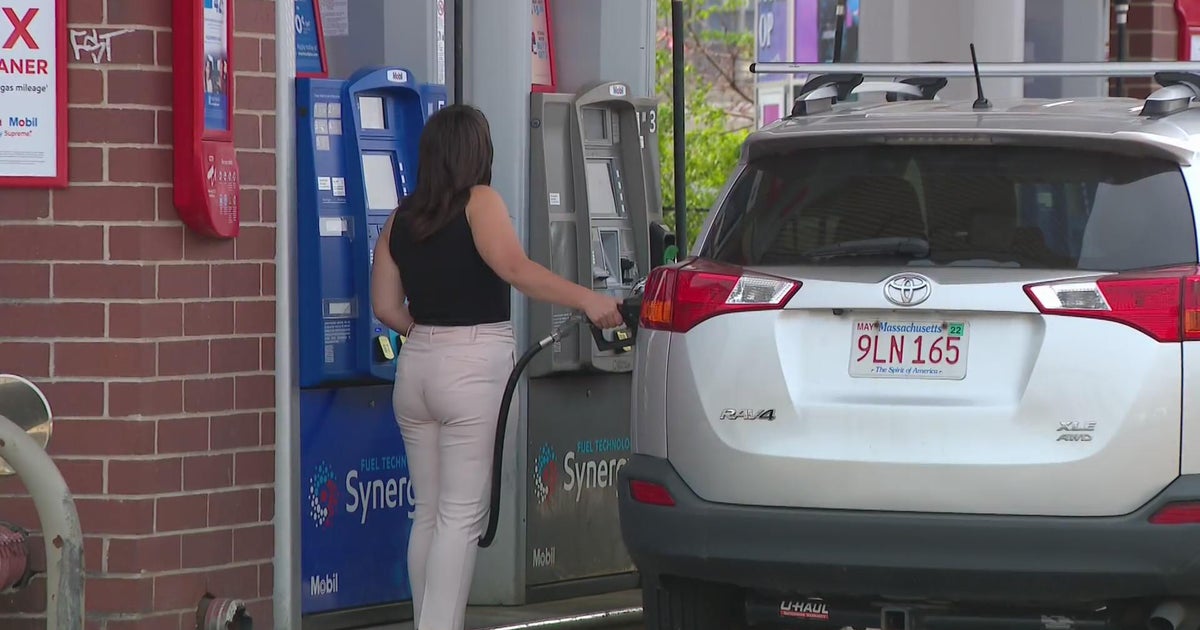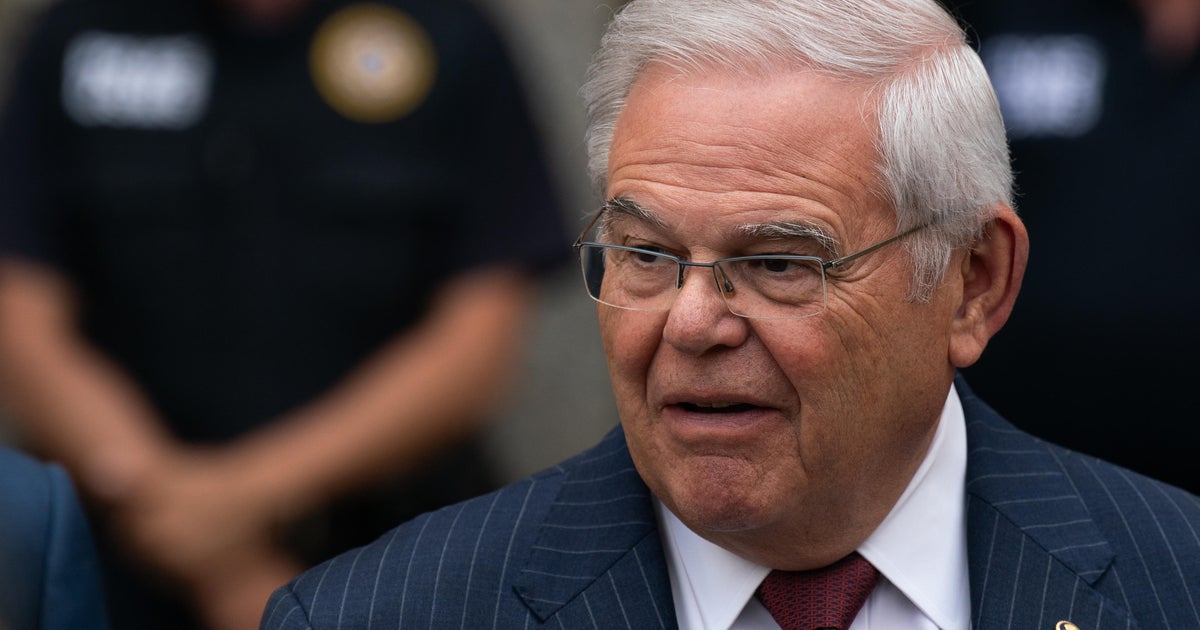CBS News
Alabama set to execute death row inmate Jamie Mills for elderly couple’s 2004 murders

Alabama is scheduled to execute death row inmate Jamie Ray Mills on Thursday, marking the state’s first execution since Kenneth Smith was put to death using nitrogen hypoxia in January. Mills will be executed using lethal injection, which is the primary method of execution in Alabama, although condemned inmates can choose nitrogen gas as an alternative.
Mills was convicted of capital murder in the 2004 killing of a senior couple at their home in northwestern Alabama. Alabama Gov. Kay Ivey authorized a 30-hour window for his execution to take place, between 12 a.m. Thursday and 6 a.m. Friday, although officials estimated that it would begin at around 6 p.m. local time Thursday, according to the Alabama Department of Corrections.
A joint statement from Ivey and Corrections Commissioner John Hamm released earlier in May noted plans for Mills’ execution could potentially change, “based on the conclusion of the required legal proceedings.” If it goes ahead as scheduled, the execution will happen at the William C. Holman Correctional Facility in Atmore.
Alabama Department of Corrections via AP, File
An Alabama jury convicted Mills in 2007 for the murders of 87-year-old Floyd Hill and 72-year-old Vera Hill, an elderly couple living in Guin, near the Mississippi border, court documents show. Two others were also found guilty in the case: JoAnn Mills, considered Jamie Mills’ wife by common law standards during the trial; and Benjie Howe, described as a local drug dealer. In court filings, prosecutors said Jamie Mills and his wife had plotted to steal money and prescription pills from the Hills after killing them. They described the murders as brutal executions, carried out using “a machete, tire tool and ball-peen hammer.”
The Hills’ money and prescription drugs were found in Howe’s possession when he was eventually arrested as a suspect, and both Jamie and JoAnn Mills’ arrests came soon afterward, as authorities say they discovered the murder weapons in the trunk of their car. DNA lifted from the tools matched one of the victims, but attorneys for Mills have in more recent years argued that little else existed in the way of concrete evidence linking him to the crime. During the trial, testimony given by Mills’ wife helped anchor the prosecution’s case.
JoAnn Mills originally suggested to authorities that Howe had planted the murder weapons in the trunk of her and her husband’s car in an attempt to frame them for killing the Hills, according to court filings. Ultimately, though, she became the prosecution’s key witness as they sought to convict Jamie Mills for the crimes. How and why that change happened later emerged as a source of controversy over whether Mills’ conviction and death penalty sentence were fair.
Transcripts from the trial show that, during questioning, former Marion County District Attorney William Bostick said on the stand that JoAnn Mills had not been incentivized to testify against her husband and accuse him of the murders. In at least one exchange, Jamie Mills’ defense counsel asked the prosecutor directly if any “inducement” existed that may have encouraged his wife’s testimony, to which the district attorney repeatedly said no. JoAnn Mills was eventually convicted in the Hills’ murders and sentenced to life imprisonment with the possibility of parole, with Alabama dismissing capital murder charges against her.
It was discovered later that her lawyer at the time, Tony Glenn, had said in a sworn affidavit that he met with the district attorney and the Hills’ family members to arrange a deal in which the state would not pursue the death penalty against her if she testified against her husband. As a result, Mills filed a motion this past April asking the court to reopen his appeal and grant a stay of execution. He has always maintained his innocence in the Hills’ murders.
Eleventh Circuit Judge Nancy G. Abudu acknowledged in the court’s opinion this week, “According to Glenn, before Mills’ trial, the victims’ daughter agreed not to oppose the State offering JoAnn a plea deal, and the district attorney agreed to not pursue the death penalty against JoAnn—so long as she ‘testified truthfully’ at Mills’ trial.”
Abudu still ruled in favor of the state, denying Mills’ appeal and authorizing the execution to go forward. Mills has filed a separate petition to the United States Supreme Court to review the decision and reconsider a stay.
In his April appeal, Mills shared concerns about the execution itself, knowing that Alabama’s correctional system earned some level of notoriety over the last half-decade or so for botching death row inmates’ executions by lethal injection. Smith became the first condemned inmate in the United States put to death by nitrogen hypoxia earlier this year after surviving a botched lethal injection attempt in 2022 in Alabama.
Abudu addressed Mills’ concerns as well.
“Mills has a valid fear that he will be unnecessarily placed on the execution gurney if a stay is in place, while the IV team is not attempting to establish IV access, or while officials transport witnesses to the viewing area, without being given any updates from officials on the status of his cases or the ongoing execution protocol,” the judge wrote in the opinion. “In its filings to this Court, the State has assured us that should Mills be granted a stay while he is on the execution gurney, he will be returned to a holding cell. The State also indicated it has taken steps to accelerate its preparation process to ensure witnesses are transported to the viewing area sooner to limit delays.”
CBS News
Trump tariffs on Canada imports could lead to sharply higher gas prices, experts warn

Americans may be shelling out more for gasoline if the incoming Trump administration follows through on threats to impose tariffs on imports from Canada and Mexico.
President-elect Donald Trump this week said he would enact a 25% tariff on all products from both countries, citing concerns about illegal immigration and illicit drugs flowing into the U.S. While prices could climb on a variety of goods shipped to the U.S., the potential impact on motorists and on the transportation sector could be particularly acute, analysts say.
“Canada and Mexico are huge U.S. trading partners, so it’s a shot across the bow of longtime U.S. allies,” Patrick De Haan, head of petroleum analysis at GasBuddy, told CBS MoneyWatch.
“For a lot of the U.S., it could be problematic for what they pay at the pump,” De Haan said of the tariffs’ impact, in particular to inland regions such as the Great Lakes, Midwest and the Rockies. “The coastal areas have more options — they don’t rely as much on Canadian crude.”
Although the U.S. is the world’s leading oil producer, we still import a lot of crude, with Canada providing roughly 20% of the oil used stateside. As a result, gas prices could shoot up 30 to 40 cents a gallon, and potentially up to 70 cents, within as little as two days after the tariffs take effect, De Haan said.
The national average for a gallon of regular on Wednesday stood at $3.07, down from $3.25 a year ago, according to AAA.
The threatened tariffs on imports from Mexico and Canada could also result in a $3,000 increase in the cost of the average car, according to Wolfe Research analysts cited by the Wall Street Journal. Roughly $97 billion in auto parts are imported to the U.S. from the two nations annually, and 4 million vehicles are shipped in — roughly 3 million from Mexico and 1 million from Canada, the firm estimated.
To be sure, it remains uncertain if Trump will follow through on his trade threats. Some analysts think the president-elect is likely using the specter of tariffs as a way to wring concessions from other countries, noting that his administration will be eager to avoid setting off another round of inflation just as U.S. prices are growing at a normal level.
“We would be surprised if [the tariffs] were ever actually implemented,” analysts with investment adviser Capital Economics wrote in a report, noting that the auto sectors in the Canada, Mexico and the U.S. are tightly interconnected.
CBS News
Macy’s Thanksgiving Day Parade balloons coming to life

Watch CBS News
Be the first to know
Get browser notifications for breaking news, live events, and exclusive reporting.
CBS News
Ex-Sen. Bob Menendez seeks new trial, citing evidence prosecutors said was inadvertently provided to jury

Washington — Former New Jersey Sen. Bob Menendez asked a federal court in New York on Wednesday to throw out his conviction in a sprawling bribery scheme and grant him a new trial after prosecutors disclosed that the jury was inadvertently provided information during deliberations that it should not have been given.
The request from Menendez’s lawyers came in response to a letter prosecutors sent to the court on Nov. 13 revealing they had unintentionally loaded onto a laptop given to the jury during deliberations the incorrect versions of nine exhibits. Prosecutors said neither they nor Menendez’s lawyers, who inspected the exhibits on the laptop, noticed the error at the time.
Government lawyers told U.S. District Judge Sidney Stein that they did not believe the inclusion of the nine exhibits warranted upsetting Menendez’s guilty verdict, in part because “there is no reasonable likelihood any juror ever saw any of the erroneously less-redacted versions.” But Menendez’s lawyers told Stein in a separate filing that the improper disclosure was a “serious breach” by prosecutors and said a new trial was “unavoidable.”
The exhibits, they said, “exposed the jury to a theory of criminality that the government was barred from presenting under the Speech or Debate Clause — namely, that Senator Menendez made specific decisions with respect to military sales to Egypt in exchange for bribes.”
Under the Speech or Debate Clause of the Constitution, senators or House members “shall not be questioned” for “any speech or debate” in either chamber of Congress. Stein had ruled that certain material referencing arms sales and military aid to Egypt were legislative acts shielded by the clause.
Menendez’s defense team said the information disclosed to the jury contained the only evidence that tied him to the provision of military aid to Egypt, which was at the center of the bribery scheme the New Jersey Democrat was accused of engaging in.
They also lambasted prosecutors for attempting to “shift the blame,” calling it “factually and legally outrageous.”
Prosecutors said the court had “expressly prohibited” evidence of past legislative activity, including actions Menendez allegedly took as a senator about foreign aid to Egypt, and said the evidence at issue “squarely crossed that line … and allowed the jury to infer bribery from Senator Menendez’s legislative acts — exactly what the Speech or Debate Clause is meant to prevent.”
Prosecutors claimed that Menendez helped orchestrate a corrupt agreement through which he would work to secretly benefit the Egyptian government in exchange for lavish gifts including cash, gold bars, a Mercedes-Benz convertible, furniture and mortgage payments from three New Jersey businessmen.
He was convicted on 16 felony counts in July, including bribery, fraud and acting as a foreign agent.
Menendez’s two co-defendants in the case, Fred Daibes and Wael Hana, also separately asked the court to grant them new trials and toss out their convictions.
Menendez faced immense pressure to resign after he was indicted on federal bribery charges last year but resisted doing so until he was convicted. He stepped down from the Senate in August, a stunning capstone to a lengthy career in the upper chamber that included a position atop the Senate Foreign Relations Committee.
The former senator is set to be sentenced Jan. 29.










